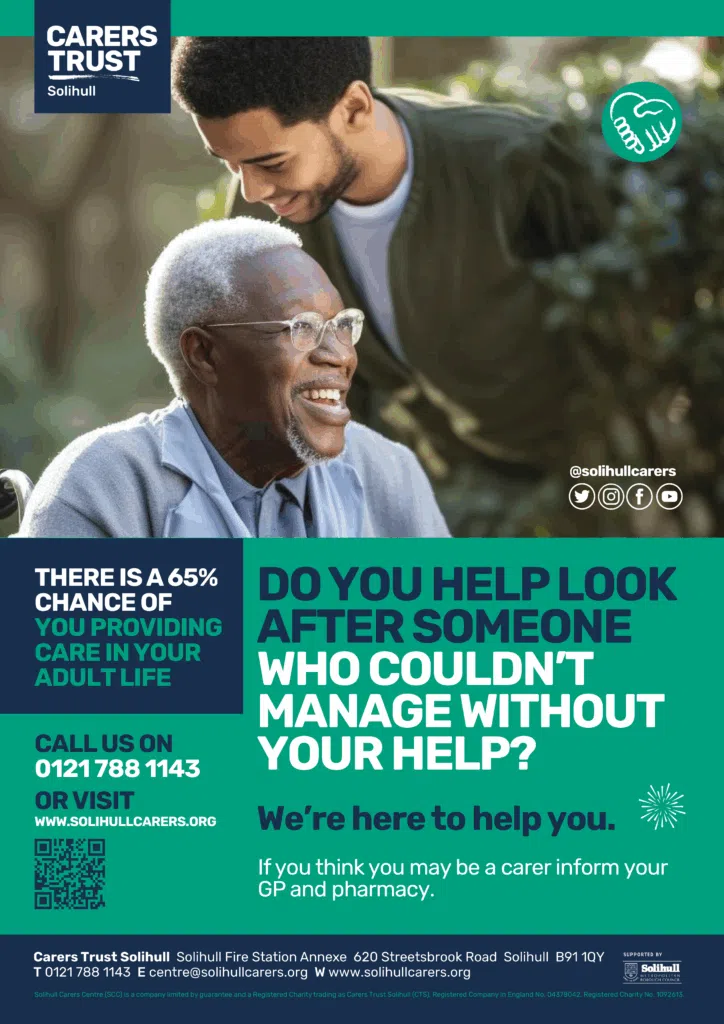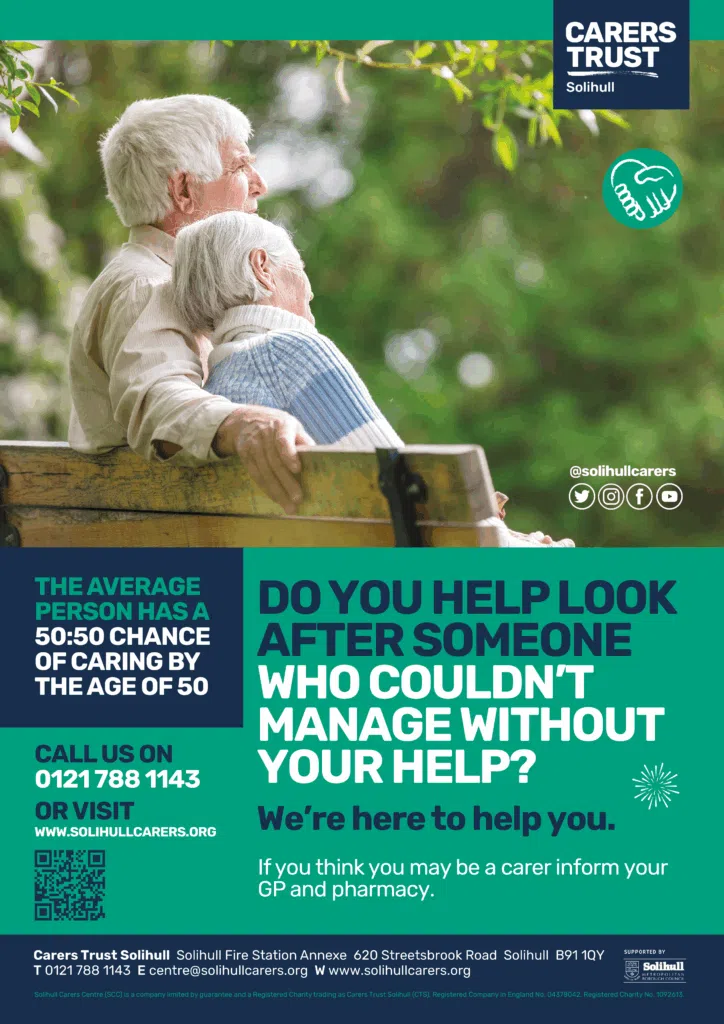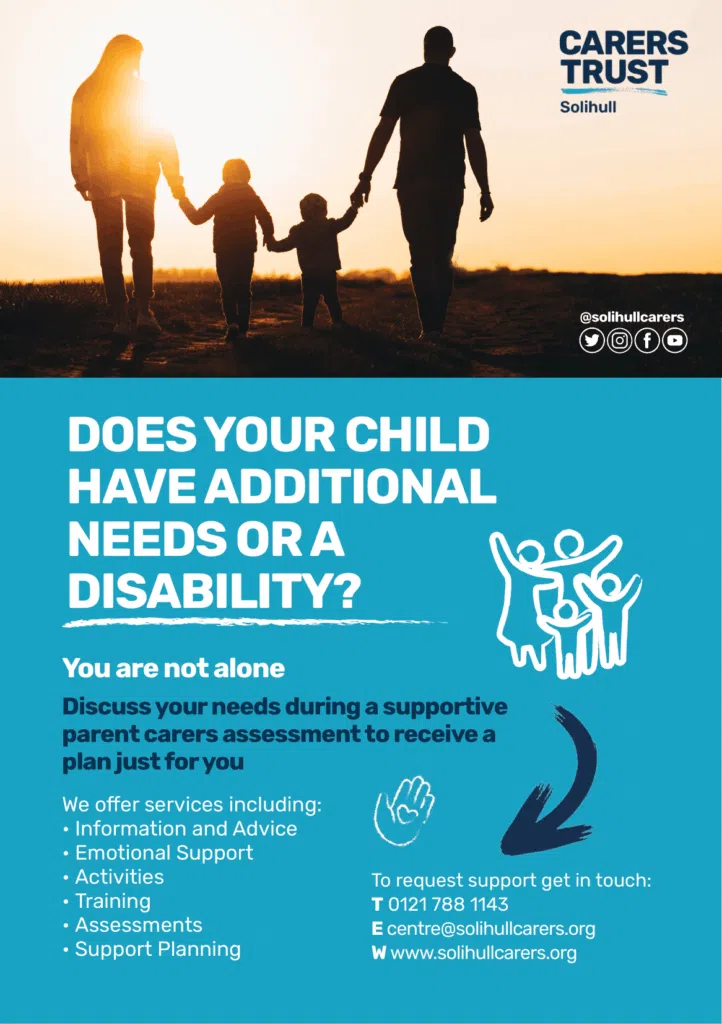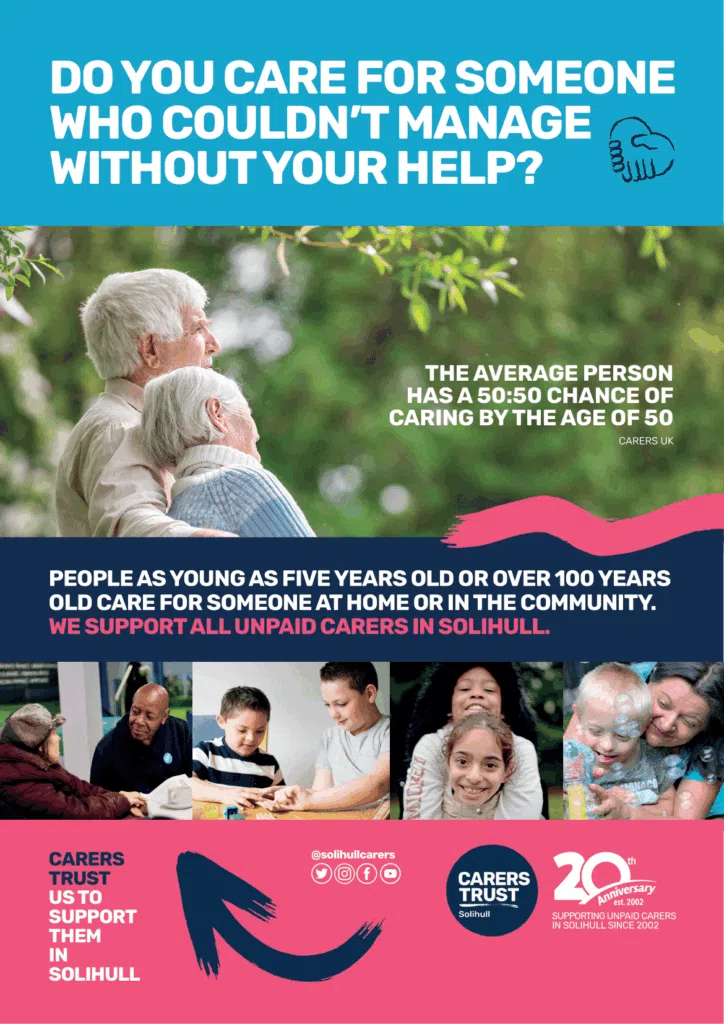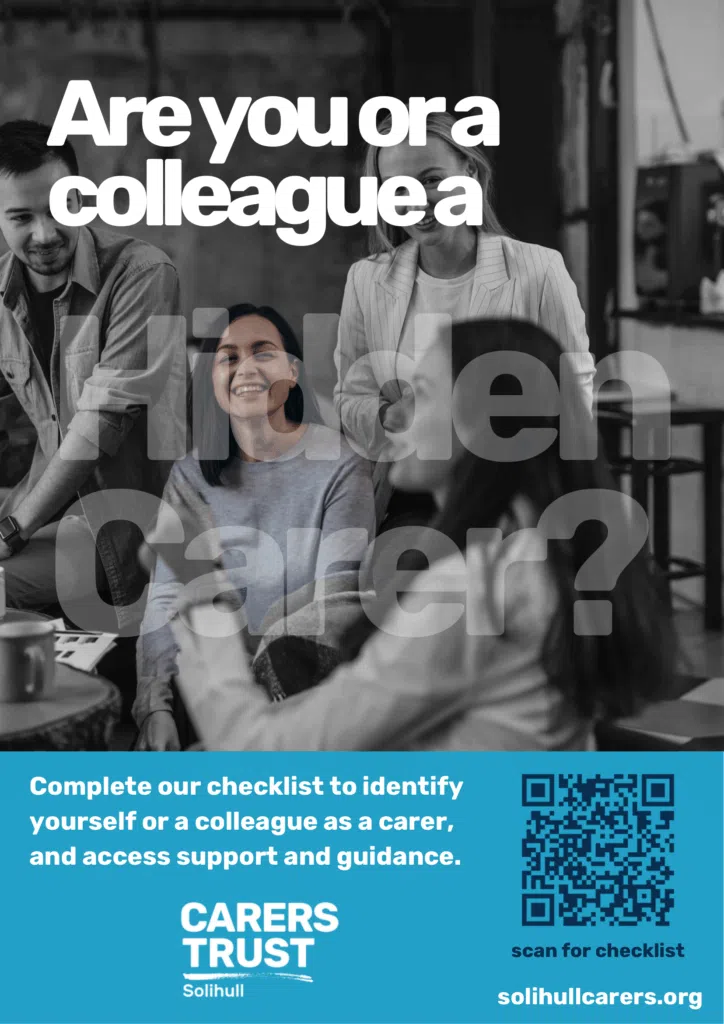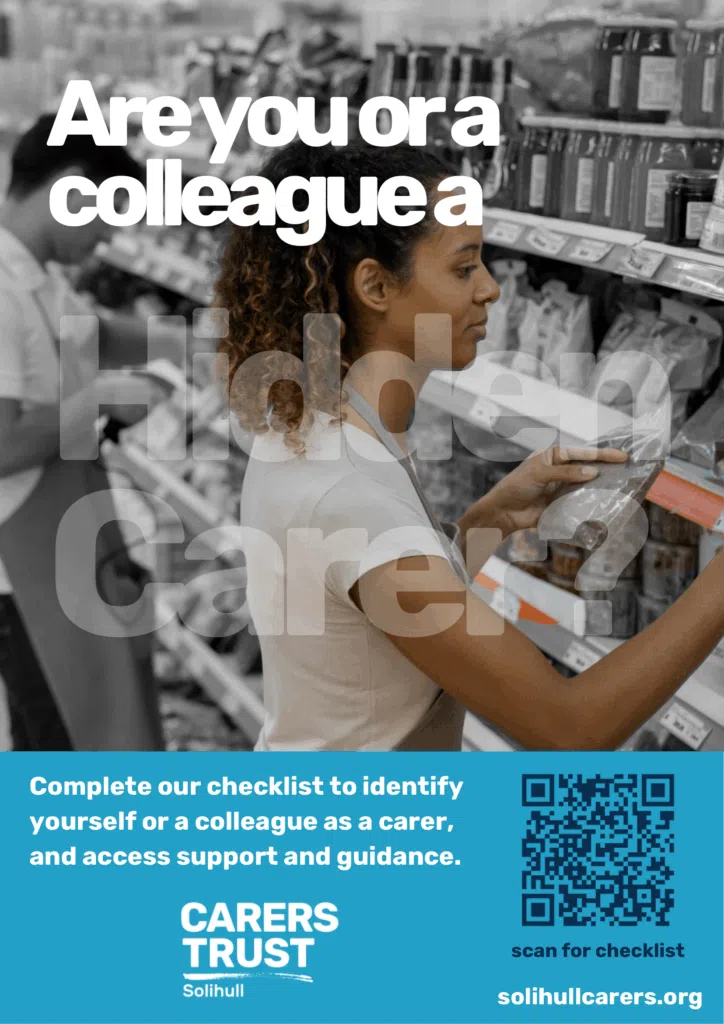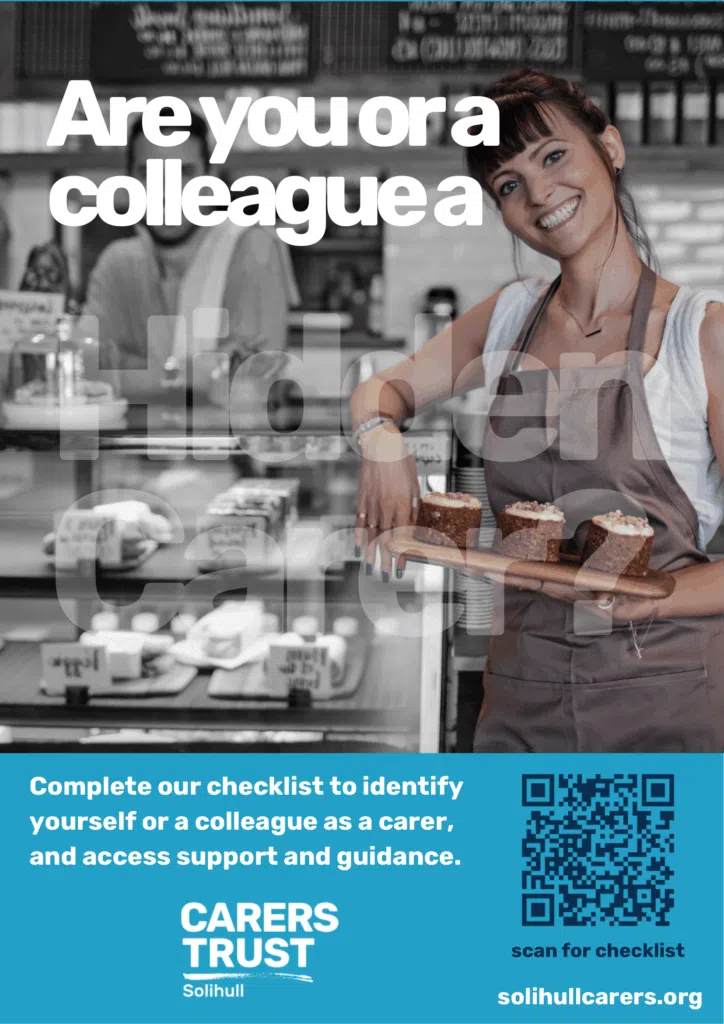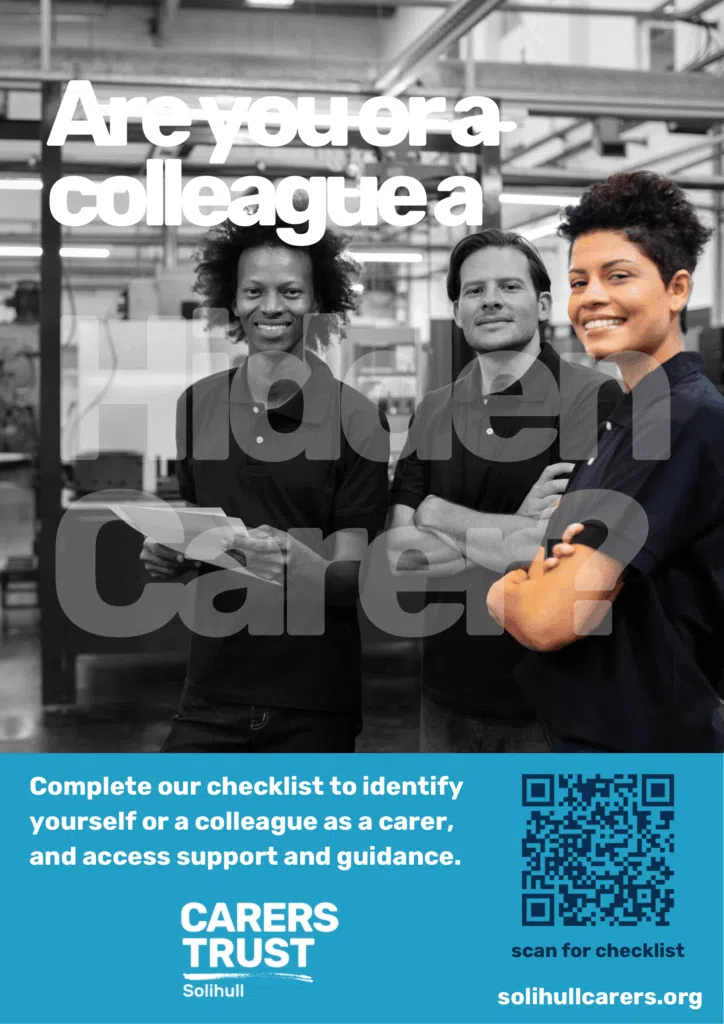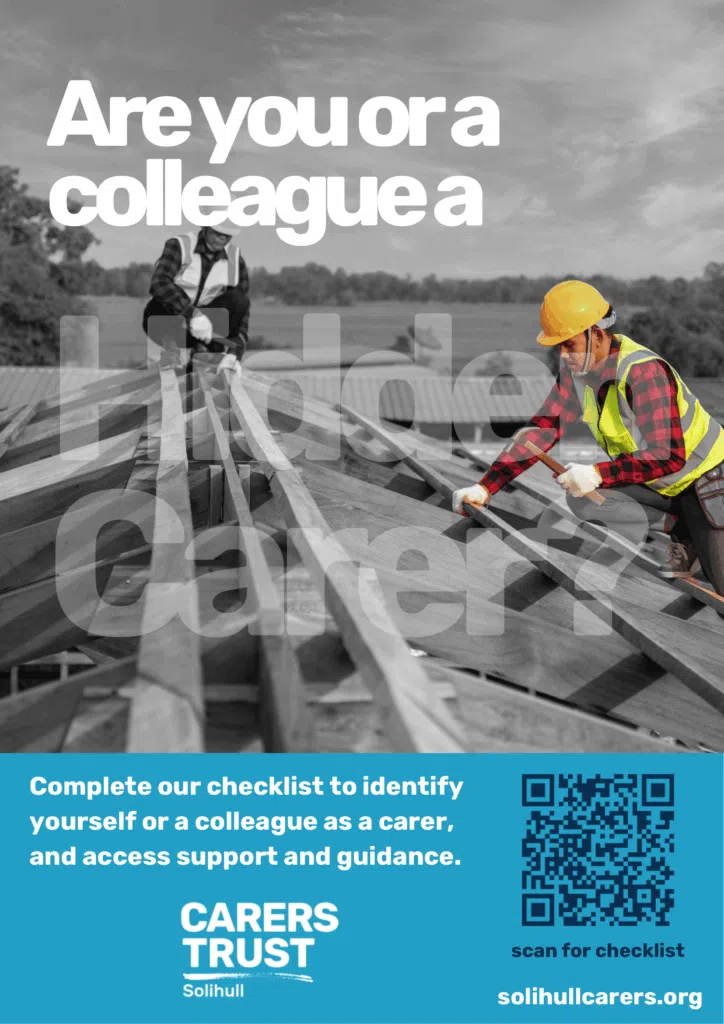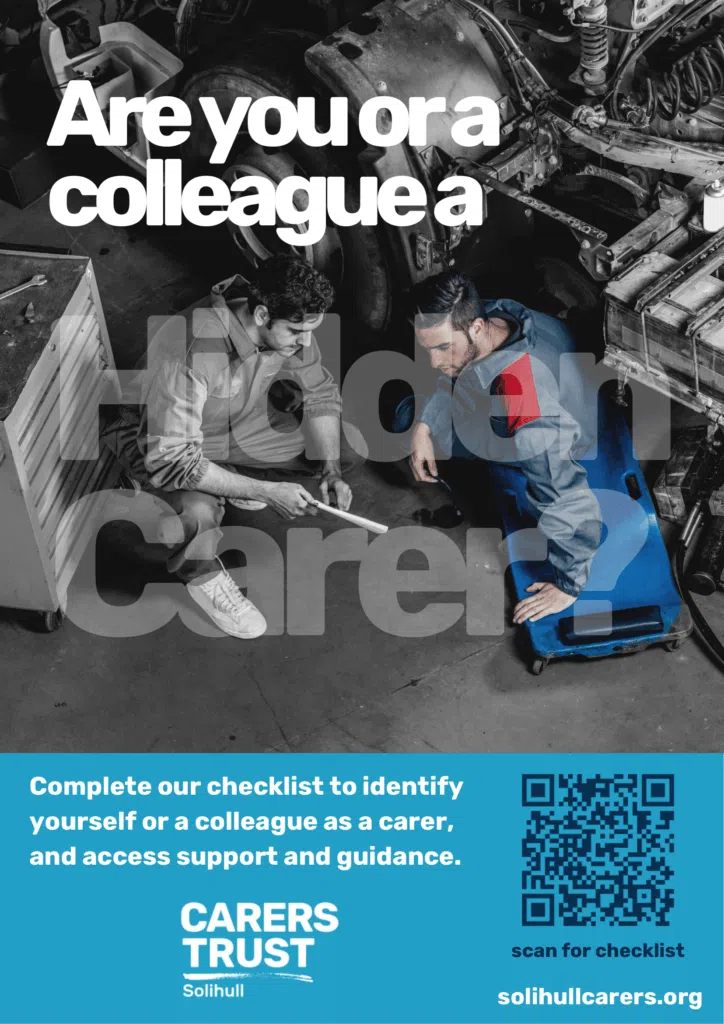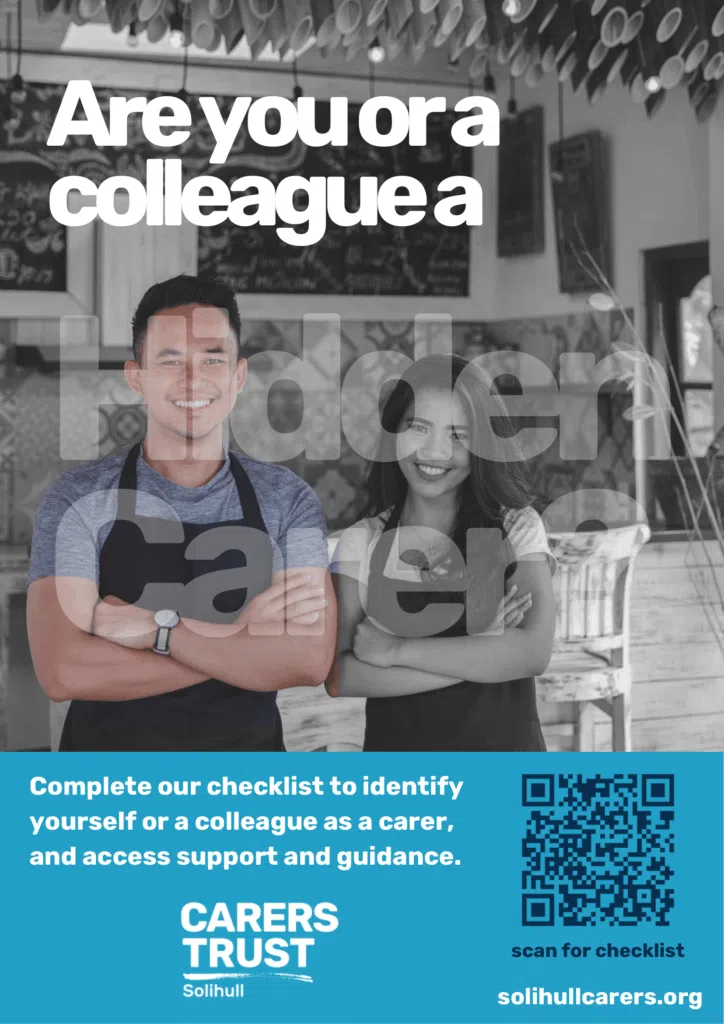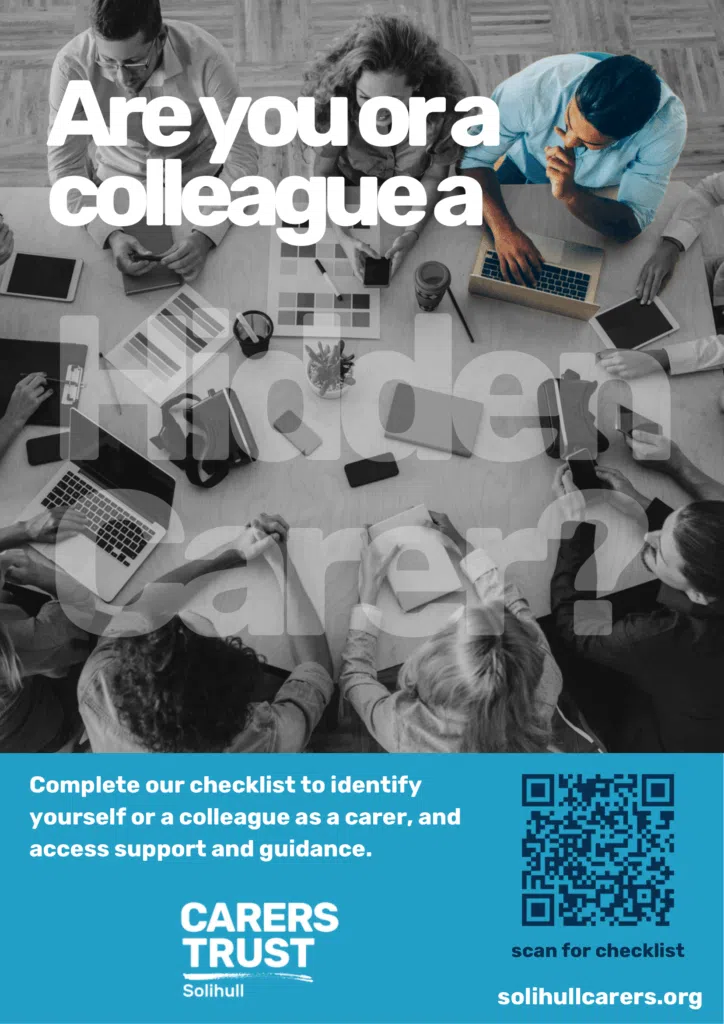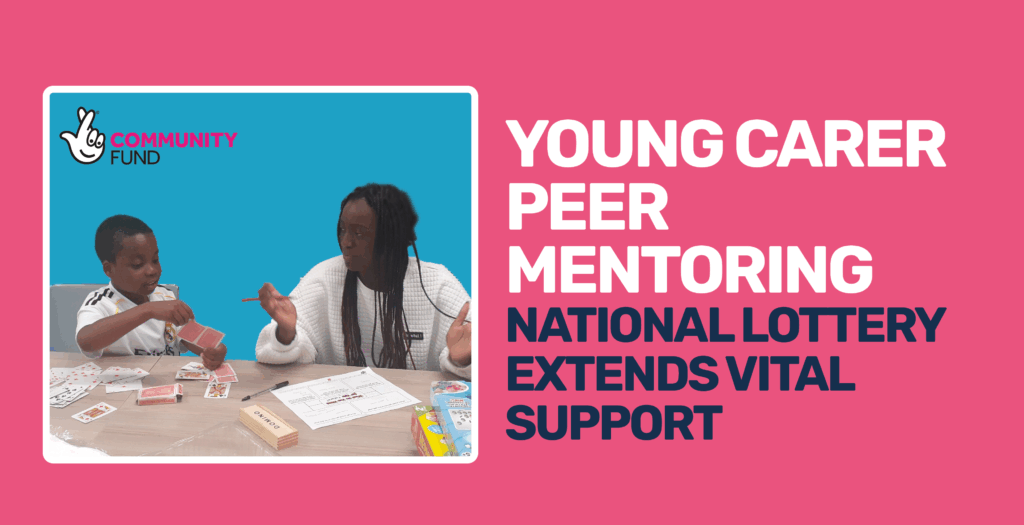employer & business Professionals
Supporting unpaid carers is a business imperative. As care needs in society rise and workforces evolve, employers who take the lead in carer-friendly practice will not only retain skilled staff but foster a culture of loyalty, empathy and resilience.
We’re here to help you make a meaningful difference.
The Scale of Working Carers in the UK
- Nearly 2.5 million people in England and Wales are in paid employment while also providing unpaid care.
- Among them, 433,000 are caring for more than 50 hours each week.
- Around one in three NHS staff in England (32%) also have unpaid caring responsibilities—estimated by Carers UK to total over half a million individuals. Among NHS staff aged 51 to 65, 43% are carers.
- People with unpaid caring responsibilities are more likely to work part-time than those without such responsibilities—38% compared to 29%.
- This trend is even more pronounced for those caring over 50 hours per week, with 43% working part-time
- While public administration, education, and health is the most common employment sector overall, a greater proportion of carers work in this sector compared to non-carers—39% versus 30%. This includes 976,000 carers.
- Carers providing 50 or more hours of care weekly are more likely to work in distribution, hotels, and restaurants (20%) than those caring under 19 hours per week (16%). They are also less likely to be in financial, real estate, professional, and administrative roles (14% vs 17%).
- Those caring over 50 hours weekly are more likely to be employed in elementary occupations (12%) than carers providing 19 hours or less (7%). They are also less likely to work in professional roles (15% vs 22%) or in managerial and senior positions (11% vs 14%).
Carer’s Leave Regulations 2024: What’s New?
The Carer’s Leave Act 2023, now implemented through the Carer’s Leave Regulations 2024, entitles employees to:
One week of unpaid leave per year to provide or arrange care for a dependant.
Access to this leave from day one of employment.
Protection of their employment rights while on carer’s leave.
A dependant can be anyone who relies on the employee for care, and does not have to be a family member. This includes those with:
A long-term illness or injury (expected to last more than 3 months),
A disability (as defined in the Equality Act 2010),
Or care needs related to old age.
Carer’s Leave can be taken in individual days or half-days and does not require evidence or written proof. Notice periods vary depending on how much leave is taken — typically 3 days’ notice for a single day, or double the amount of leave requested (e.g. 4 days’ notice for 2 days of leave).
Employers cannot refuse a request, although they can delay it if the absence would seriously disrupt operations. In such cases, a new date must be agreed within one month and confirmed in writing within seven days.
Despite the new entitlement, only 42% of carers in employment were aware of Carer’s Leave as of early 2024. Of those eligible, just 15% had used the leave since April — largely due to financial constraints.
In fact, 56% of working carers reported they could not afford to take unpaid leave, despite needing it. This highlights a critical gap: legal rights alone are not enough — workplace culture and support structures must follow.

Why Carer-Friendly Workplaces Matter
Failing to support carers isn’t just a social issue — it’s an economic one. 1.2 million unpaid carers live in poverty, with 1 in 10 in deep poverty. Many are forced to choose between work and caring.
By contrast, employers who invest in supporting carers see tangible benefits:
Higher retention: Centrica saved £3.1 million annually by avoiding unplanned absences and improving employee retention with carer-friendly policies.
- The peak age for caregiving is between 45 and 64, a demographic that often encompasses highly experienced and skilled workers. Without adequate support, businesses risk losing valuable talent, leading to increased recruitment and training costs.
- Nationwide, UK businesses could save up to £4.8 billion annually by minimising unplanned absences and an additional £3.4 billion through enhanced employee retention when adopting flexible working arrangements for carers.
Improved productivity: Supported employees are more engaged and less likely to require unplanned leave.
- Supportive measures, such as flexible working hours and paid carers’ leave, can alleviate stress and prevent burnout among employees juggling work and caregiving responsibilities.
Better reputation: Inclusive policies enhance employer branding and attract top talent. Under the Equality Act 2010, employers have a duty to prevent discrimination against employees with caregiving responsibilities
how you can take action
hidden carer campaign
UB Healthcare has partnered with Carers Trust Solihull to support “hidden carers” — individuals who provide unpaid care to family members or friends while also managing work or other responsibilities, often without recognition or adequate support.
The initiative is designed to help employers identify and support these carers within their workforce. UB Healthcare has developed a simple, one-page guide to assist organisations in recognising hidden carers and signposting them to the right support services.
Workplaces can also download and display printable flyers and posters, encouraging carers to seek advice and support when needed.
Carers Trust Solihull offers vital services, including advice on carers’ rights and guidance on accessing appropriate help. This collaboration highlights the importance of recognising hidden carers and ensuring they receive the understanding and support they deserve.
Complete this checklist to identify yourself or a colleague as an unpaid carer.
- Do you help someone because of their age, illness, frailty, disability, addiction, or mental health issues to live independently?
- Do you live with the person you care for and spend many hours supporting them?
- Do you drop in on someone to ensure everything is okay, bring them meals, pick up prescriptions, administer medication, or run errands for them?
- Do you find the person you care for needs more and more of your time, affecting your ability to fulfil work commitments or maintain relationships with others
- Has caring for someone happened suddenly, for example, after a hospital discharge, or have you found yourself doing more over many months and years?
download resources & posters
You are free to use these resources in your place of business to help hidden carers be seen.
How we support unpaid carers
Carers ID Card
Carers in Solihull registered with our service will receive a Carers Identity Card. This card is a handy tool for carers and has 3 main functions
- Quick access to emergency contacts
- Proof of being a carer
- Concessions and free entry to providers
We encourage carers to keep their card in the purse or wallet as this can be a useful tool should you be in an emergency. You can use this for telephone numbers of whom to contact in an emergency and to alert others you are caring for someone who may need help back at home.
You can find our concessions list here
As much as we aim to keep our concession lists up to date, we encourage carers to always check concessions in advance to avoid disappointment. If you know of any changes to current concessions or others not noted, please let us know.
Information & Advice
Getting the right information at the right time can make caring a lot easier. Our Carer Practioners have specialised knowledge to help and guide you on your caring journey.
Emotional Support
A listening ear when you need one, you can call us on 0121 788 1143 and speak to one of the team.
Carers face many challenges, including isolation, exhaustion, and a wide range of emotions that can sometimes feel overwhelming. While talking to a trusted friend or family member can be helpful, it’s often easier and sometimes more effective to speak with someone outside your immediate circle.
We’re here to offer you the opportunity to talk to someone who understands what you’re going through and can support you with the challenges you face.
Carer's Assessments & Support Plans
We are commissioned by Solihull Council to carry out Carers Assessments and Support Plans for carers who care for someone living in Solihull.
A Carers Assessment gives you the opportunity to discuss your caring role, how it impacts different areas of your life and identify what support would be helpful to you. It is a supportive process, where our staff will listen to you without judgement. After the assessment, a support plan will be produced identifying areas of support needed and how these needs can be met.
You can read more about assessments here —
Alternatively, if you would like more information or to request an assessment, please contact us on 0121 788 1134.
Events & Activities
It is important for carers to take a break from caring. We offer a wide range of events and activities that offer respite opportunities for carers, such as:
Day Trips – local attractions / theatre / family beach days
Relaxation Sessions – free relaxation appointments for carers including massage, Reiki and Reflexology
Vouchers – opportunities to receive a cinema or eat out voucher to use independently for a break.
Monthly meet ups – Where carers join us for a cuppa and chat.
On many of our day trips, the person you care for can come along with you (subject to age and capability).
You can find out what’s on and register your interest on our online calendar.
Training & Workshops
We offer a variety of free training workshops to help carers to feel confident and supported in their caring role. Some of our sessions include:
- Contingency planning
- Wills and Power of Attorney
- Benefit advice
- Stress management
- End of life
- Caring for someone with Dementia
- And more
Our sessions are held face to face and online, check out our what’s on page to find out about what sessions we have coming up.
Our Trained Befrienders Are Here For You
Caring can be isolating, and many carers feel the benefit from peer support or talking to others who understand but are not linked to you or your caring situation (for example family or friends).
Our Befrienders are friendly and non-judgmental, ready to listen and help.
This service is an opportunity for you to regularly check in with a matched volunteer to discuss anything on your mind. Befrienders can help you achieve personal goals, source local activities and help navigate services. They can also support you to build confidence and skills or give you the time to be heard.
If you are interested in our befriending service, please contact centre@solihullcarers.org
Online/Digital Support
We have a variety of online resources to help support you in your caring role, whether you are new to caring or have been caring for a while, there is something useful for everyone.
Carers Essential Guides – these guides cover the basics and important topics we think every carer should know about.
Blogs and News – find out the latest news for carers and useful blogs covering a range of topics.
Videos – We have a range of informative videos, some of carers sharing their experiences, professionals advising on benefits, energy costs, health, legal matters and awareness campaigns such as Carers Rights Day
Podcast – Our very own podcast ‘Carers Talk’, where we talk to professionals about carers topics, and other unpaid carers share their experiences, stories, tips and advice. It’s full of useful information we think is important for carers to know.
E-learning – We have created a contingency planning e-learning tool to help you build your own emergency plan. You can do this at your own time in the comfort of your own home.
Unpaid carer stories
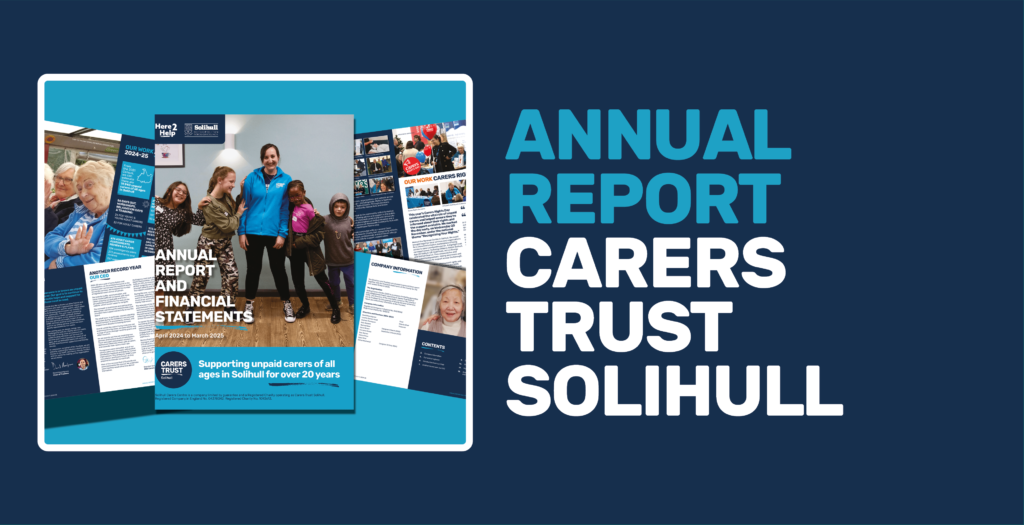
- 2 minutes |
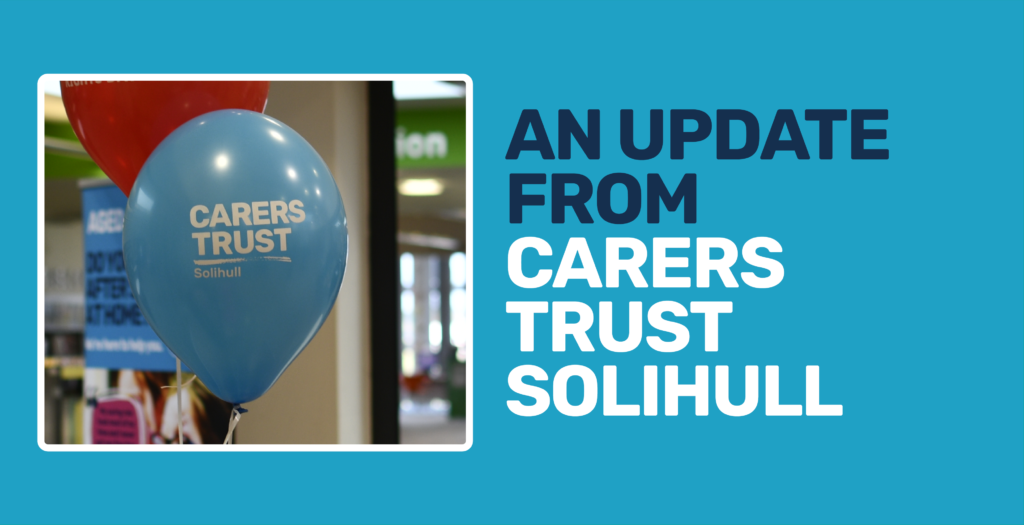
- 5 minutes |
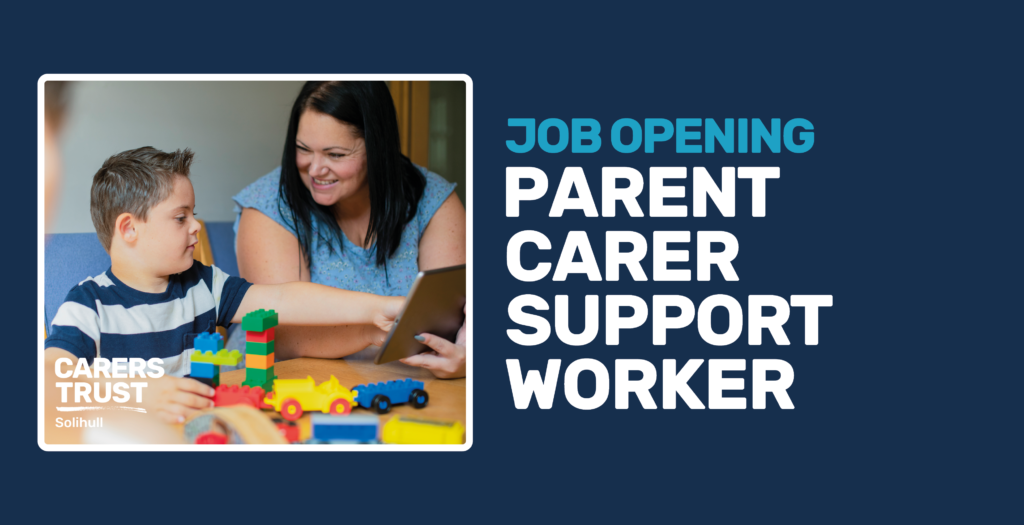
- 4 minutes |
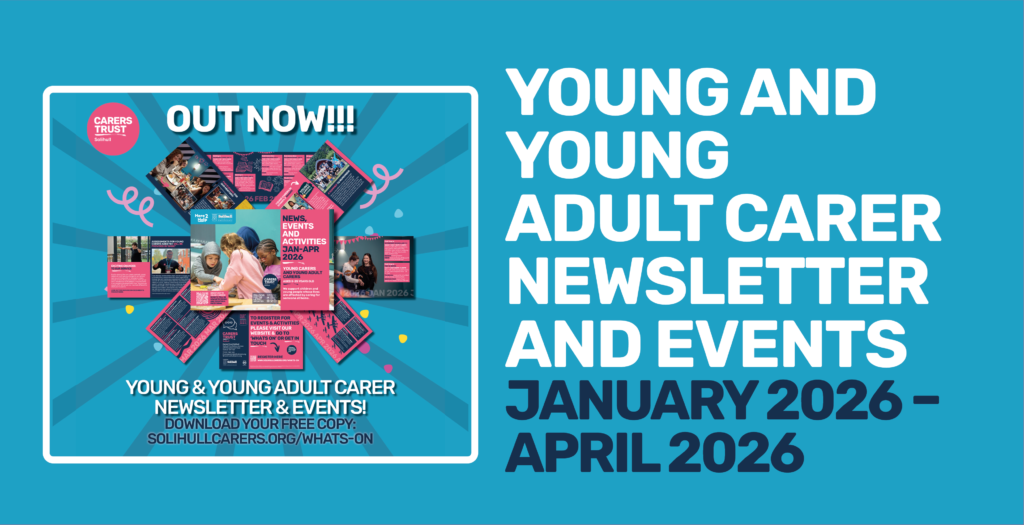
- 2 minutes |
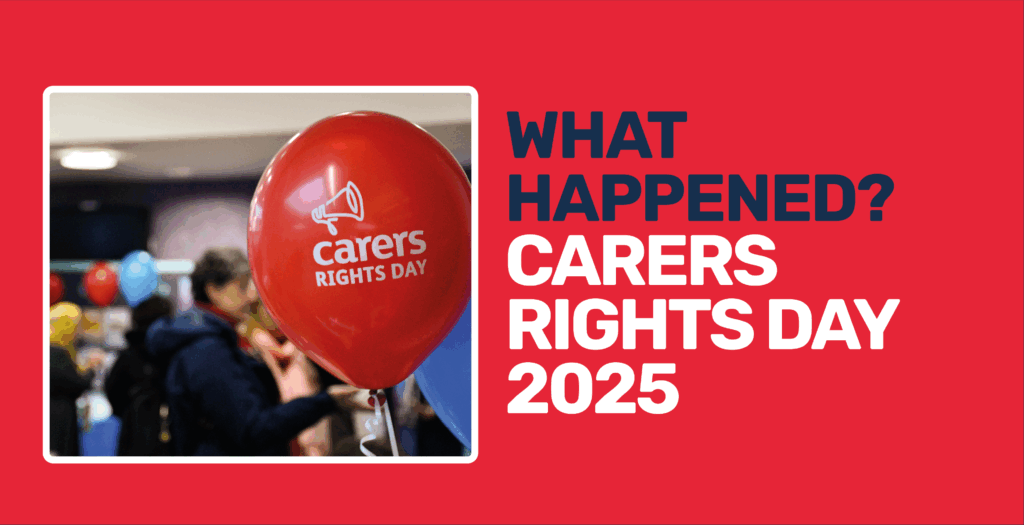
- 27 minutes |

- 6 minutes |

- 4 minutes |

- 2 minutes |

- 3 minutes |
